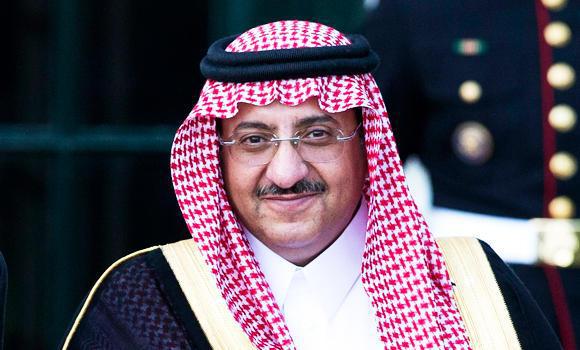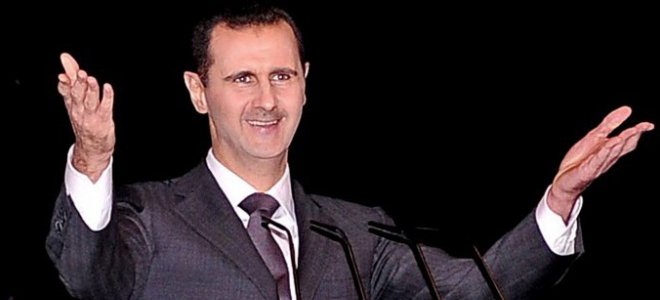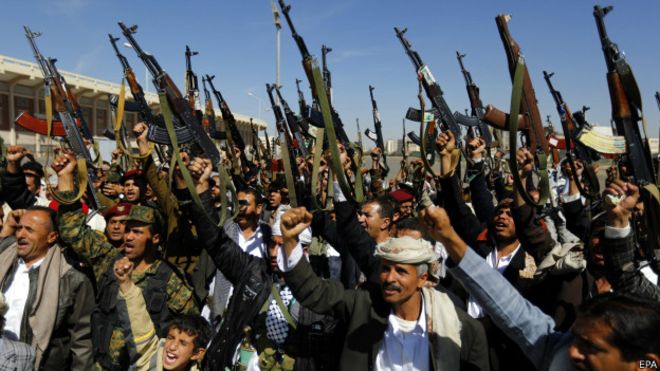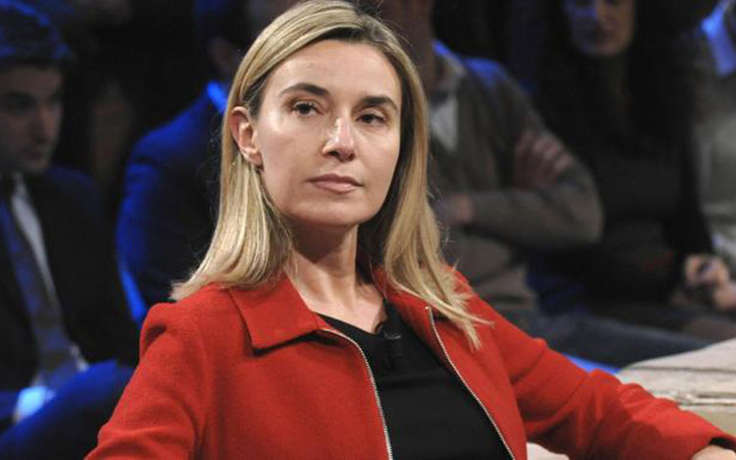Iranian President Hassan Rouhani on Thursday called on regional rival Saudi Arabia to "cease and desist" from "divisive policies" if it was serious about regional peace and security.
Rouhani was addressing the United Nations General Assembly the day after Saudi Crown Prince Mohammed bin Nayef suggested Iran should be a better neighbor in the region and not interfere in the affairs of other countries.
The leading Shi'ite Muslim power, Iran and Sunni monarchy Saudi Arabia are both fighting Sunni militants of Islamic State, which controls parts of Syria and Iraq and has supporters and sympathizers worldwide who have carried out bombings and shootings of civilians.

Mohammed bin Nayef
"If the Saudi government is serious about its vision for development and regional security, it must cease and desist from divisive policies, spread of hate ideology and trampling upon the rights of neighbors," Rouhani said.
Saudi Arabia sees Iran as the paramount threat to the Middle East's stability, because of its support for Shi'ite militias that Riyadh says have inflamed sectarian violence. Iran has sent thousands of troops and advisors to Syria to back President Bashar al-Assad's forces in their fight against rebels supported by Saudi Arabia and other Sunni powers.

Bashar Assad
Riyadh also accuses Iran of backing Yemen's armed Houthi movement, which drove the internationally-recognised government into exile, triggering a Gulf intervention in March. Tehran views the Houthis as the legitimate authority in Yemen but denies providing any material support to them.

Huthis in Yemen
Saudi Arabia cut diplomatic relations with Iran in January after Iranian protesters attacked Saudi diplomatic missions in Tehran and Mashhad following Riyadh's execution of a prominent Shi'ite cleric. On Wednesday, the Saudi Crown Prince said Iranian authorities had "not lived up to their duty to provide adequate protection in accordance with the binding international agreements", according to the Saudi Press Agency. It is important to create "the appropriate conditions for any constructive dialog to take place in accordance with the rules and norms of international law relating to the principle of good neighborly relations and respect for sovereignty of states and non-interference in their internal affairs," he said.
Lack of compliance
In his speech, Rouhani criticized the United States for its "lack of compliance" with a landmark nuclear deal reached with six major powers and Iran in 2015 aimed at curbing Tehran's nuclear program in exchange for lifting sanctions. Tehran has called on the United States to do more to remove obstacles to the banking sector so that businesses feel comfortable investing in Iran without fear of penalties.
Following a meeting of the six world powers and Iran on Thursday on the sidelines of the annual U.N. gathering of world leaders, the European Union's top diplomat Federica Mogherini said the common assessment was that the deal was being implemented. However, she said Rouhani's concerns were discussed and there was a strong commitment to "accelerate the pace of it and ... to go the extra mile to continue working for the Iranian people to feel the real benefits in their everyday life." "We have discussed the outreach we have done all of us collectively and individually to reach out to businesses, banks to encourage engagement in Iran," she told reporters. "It's a process that some of us might wish to see going a bit faster."

Federica Mogherini
Major foreign banks are wary of doing business with Iran because of concerns that they could be caught up in restrictions applying to U.S. banks, which are still banned from doing business with Iran because of core U.S. sanctions that remain in force. "The lack of compliance with the deal on the part of the United States in the past several months represents a flawed approach that should be rectified forthwith," Rouhani said.
Iranian leaders have repeatedly denounced as "theft" a US Supreme Court ruling in April that almost $2 billion in frozen Iranian assets must be paid to American families of those killed in attacks blamed on the Islamic Republic.
"Any failure on the part of the United States in implementing it (the deal) would constitute an international wrongful act and would be objected to by the international community," Rouhani said. Iran's top authority, Supreme Leader Ayatollah Ali Khamenei, has ruled out any detente with Iran's arch foe the United States even after the lifting of economic sanctions in January.
Washington severed relations with Tehran shortly after Iran’s 1979 Islamic revolution when hardline Iranian students seized the U.S. embassy in Tehran and took hostage 52 Americans for 444 days.






